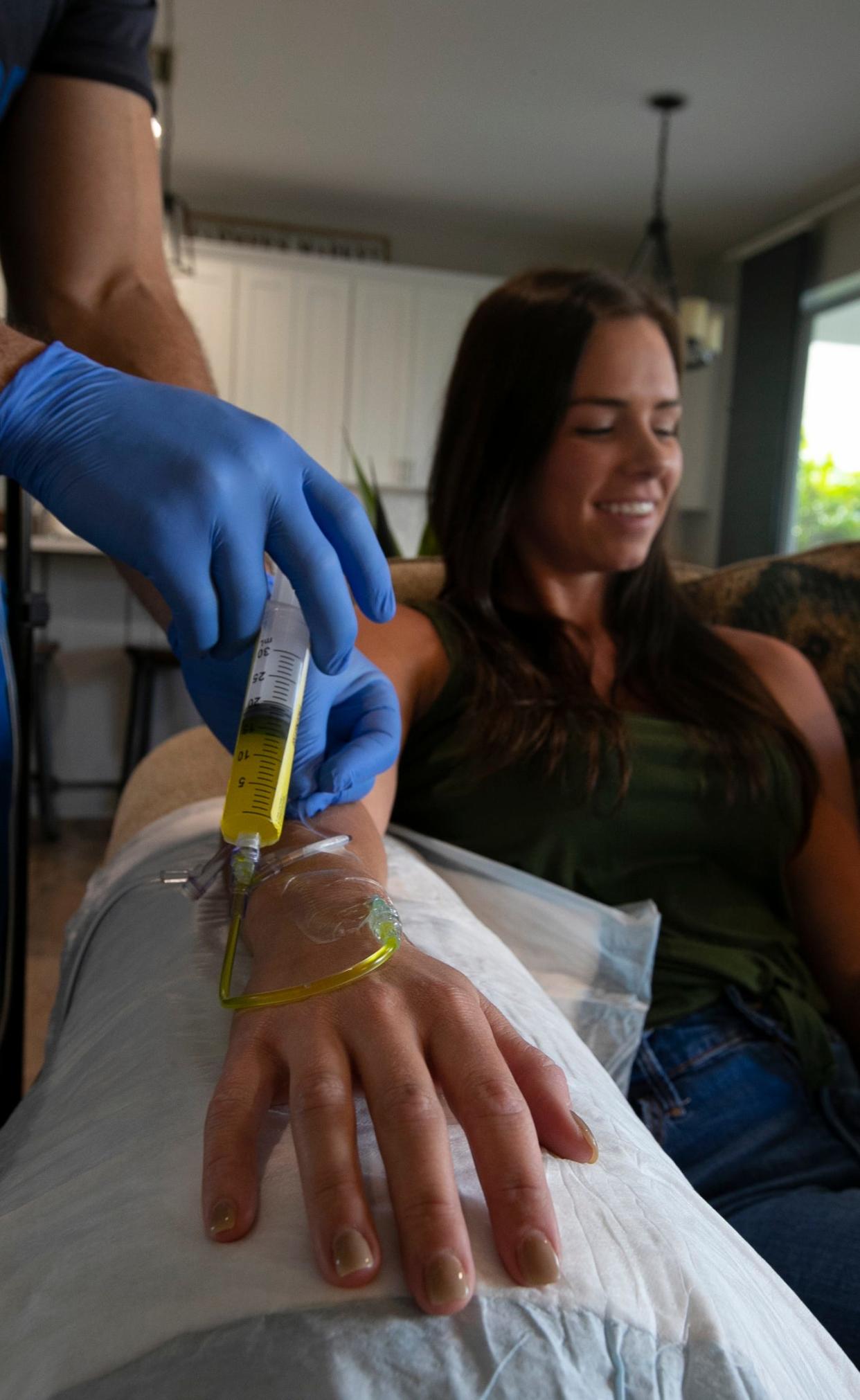South Dakota doesn’t inspect or license growing IV hydration clinics

The South Dakota Department of Health doesn’t inspect or license IV hydration clinics, which are increasingly popular places to treat ailments such as hangovers, fatigue and jet lag with supplements delivered intravenously.
The clinics have appeared as retail storefronts, medical spas and Sturgis Rally vendor booths in South Dakota. The IV cocktails can cost anywhere from $100 to $300 with ingredients such as Vitamin C, magnesium or folic acid.
The state’s oversight is limited to administrative rules for medical professionals, a set of elective IV infusion guidelines from the South Dakota Board of Nursing and a statute declaring that only licensed medical professionals, such as nurse practitioners or physicians, can start IVs.
That concerns some medical professionals in South Dakota. Dan Somsen, a member of the state Board of Pharmacy and a retired retail and hospital pharmacist, broached the subject of IV hydration at the board’s recent meeting and expressed concern about the lack of regulation.
“IV hydration means you’re bypassing the skin, which is a major protection from any adverse infections,” Somsen told South Dakota Searchlight. “I just feel there needs to be some control and responsibilities to maintain proper sterile technique. That’s my concern.”
The federal Food and Drug Administration does not regulate the elective treatment, which isn’t typically covered by insurance. According to a report published by the FDA in October 2021, the agency has become increasingly aware of insanitary conditions where drugs are being mixed, particularly in IV hydration clinics, medical spas and mobile IV services.
That has long been a topic of concern for health care professionals who say medical facilities require proper oversight and inspections to ensure safety, sterile environments and infection control. Medical experts also say the treatments need more study.
“Patients can be significantly harmed when drugs are compounded in a way in which sterility or quality cannot be assured,” according to the FDA. “In addition, sterile compounding activities being performed by business entities such as IV hydration clinics present risk and require continued evaluation.”
State Department of Health Secretary Melissa Magstadt is an advanced practice registered nurse and is listed as the CEO and founder of SG Essentials in Watertown, a medical spa offering IV hydration services. The department did not respond to requests from South Dakota Searchlight for an interview with Magstadt.
Denise Hanisch, president of the South Dakota State Medical Association, said clients should only seek retail medical care if they’ve talked about it with their physician.
“A person should know who is administering it and whether they are qualified,” Hanisch said in an emailed statement. “Ideally, there should be a physician there so if something were to go wrong, there is appropriate care and infrastructure to respond effectively.”
Somsen would like to see the state Department of Health expand its authority and license IV hydration clinics. Kari Shanard-Koenders, executive director of the Board of Pharmacy, mentioned during the board’s June meeting that the department licenses and routinely inspects other medical facilities in the state.
“It’s just one of those gray areas we have to get resolved,” Shanard-Koenders said.
In email correspondence with South Dakota Searchlight, a spokesperson for the state Department of Health did not say if the department is looking to expand its authority. Such a move, either by law or rule changes, would require the Legislature’s approval, according to the department.
However, the department said IV hydration clinic operators — such as nurses, doctors, physician assistants and nurse practitioners — are regulated by their respective licensing boards. But that only concerns professional licensing and complaints. The professional boards don’t inspect facilities like the Board of Pharmacy, which inspects each pharmacy in the state.
Legislators serving on the Administrative Rules Committee will hold a public hearing on proposed rule changes for the Board of Nursing in October, some of which would “modernize” intravenous therapy practices, said Executive Director Linda Young at the board’s Aug. 25 meeting.
Lindsay Olson, board staff, nursing practice consultant and the Center for Nursing Workforce director for the state Department of Health, added later in the meeting that states across the country lack a standard of regulation regarding IV elective services.
This article originally appeared on Sioux Falls Argus Leader: South Dakota doesn’t inspect or license growing IV hydration clinics

